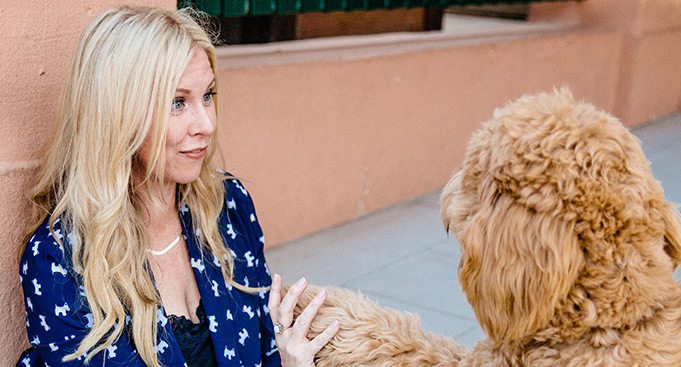BY DR. JESSICA VOGELSANG (Pawcurious.com)
The past couple of weeks have changed everything. How we live, how we work, how we
survive. Changes that should have taken months, even years are now being put into play in a
matter of hours in an attempt to stay in front of this tidal wave of corona chaos.
Maybe there was a little uncertainty in our lives, but you could always find someone with the answer:
What’s going to happen?
What should I do?
Is there anything more disconcerting that not knowing what to do? There is nothing worse than
looking desperately for leadership, for guidance, for something, and finding nothing but a
vortex.
As people in the veterinary profession, the answers have always been there. The board tells us
what we can and can’t do. We know what we are and are not capable of. Easy. We filter what
we know how to do through the rules of what the board says we can do and then we tell the
client what they should do, and that is how we help them.
Then everything changed.
We went from being told “telemedicine is very dangerous and should be used very sparingly” to
“telemedicine is vital to your survival” and everyone’s head exploded. No one knows what to do.
The state boards aren’t answering their emails because they’re swamped and the AVMA is
working 24/7 to try and figure out which state said what and in the meantime we’re all waiting
patiently to figure out what we’re allowed to do while owners sit out in their cars coughing into
the steering wheel and MDs are pounding on our doors begging for masks.
What should we do?
Just help them.
Just !#@$#@%$@#!# HELP THEM.
Who? Doesn’t matter. How? However you are comfortable. Why? Because that’s what we do.
We are so focused on diagnoses and prescriptions and rules and regulations that we forget
there a hundred and one million things we do each and every day that don’t rely on a VCPR.
Even if it did, no one knows what constitutes a VCPR anymore because those rules quite are
quite literally evaporating.
No, really. The FDA just said, “hey, it’s an emergency and we don’t care how you establish a
VCPR.” They essentially just told the states, “you can’t use us as an excuse for not giving your
practitioners permission to help where they see fit.” Expect telemedicine to get a lot more legal
in states, real fast. Advice and triage, by the way, have always been legal with no VCPR.
We’ve spent our whole careers thinking we are the heroes in our client’s story instead of
understanding that we’re not Frodo, we’re Gandalf.
We’re not here to solve the problem, we’re here to guide them. The path you put them on matters so much less than the fact that you helped them determine which path that is.
Just help them.
Our clients aren’t nearly as focused on a diagnosis as we are. They don’t care if their dog is vomiting because of a sock or garbage gut, they just want to know if they need to go to the ER or if they can come in and see you.
We’ve undervalued our advice and guidance our entire careers instead of owning it. Can you make triage calls and consults a service you charge for? (yes) Does it matter what your state VCPR laws say in order to do that? (no)
It’s a pandemic. You have an extraordinary amount of latitude with your current clients already
if the VCPR’s already been established.
The answers you want from the powers that be aren’t coming in time to help that person on the phone crying because their dog’s phenobarb prescription is up for refill and they’re too scared to come in for bloodwork because they’re sick.
That owner whose atopic dog is having a flareup needs to know if you’ll help them or if they
should bring their dog into the already swamped ER for some Apoquel.
Just help them.
The answer you give to the local hospital asking for some gloves isn’t going to come from a
government order. It’s going to come from your head and your heart.
Just help them.
The answer to how you can stay afloat isn’t going to come from following long-established rules
and ideas but from some real fast implementation. Practice owners are jumping into action and
taking steps that are preserving patient health and keeping them in business- and they’re not
waiting to be told how.
The leader’s not coming. You are the leader. Your clients, your staff, your colleagues, your
community- they’re asking for you and your guidance and support. As a veterinary community,
our leadership and our rule makers have all in their very government-y way said, “your job is to
improve patient outcomes how you see fit.”
I don’t know what your skillset and comfort level is. Don’t do something you’re not comfortable
with. But on the flip side don’t wait for anyone else to answer the question of “What do I do
next?” either.
Just help them.
Check out how the members of our #SnoutSquad mastermind are helping pet owners – and their veterinary colleagues – during this crisis:

